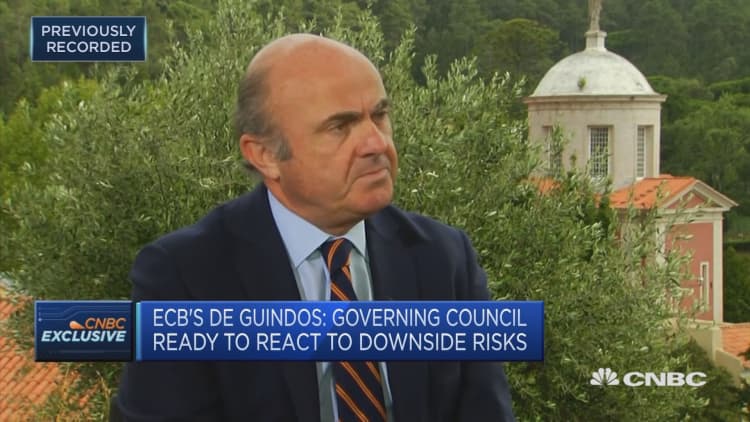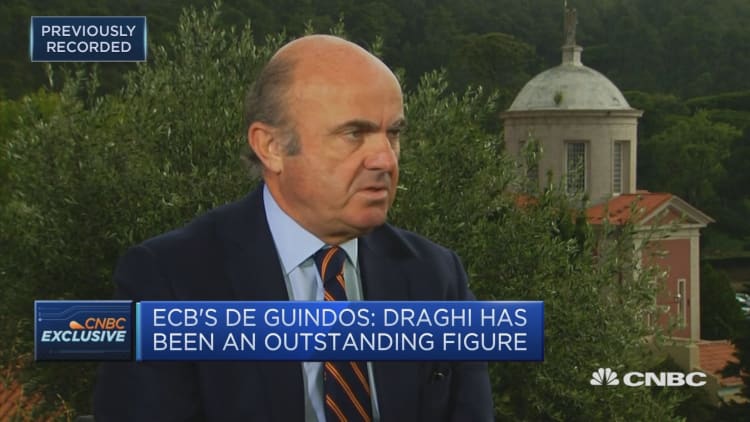
The European Central Bank's (ECB) vice president said another large bond-buying program could be an option if inflation in the region doesn't reach its intended target.
Market players are keeping a close eye on the ECB amid concerns about growth in the 19-member region. ECB President Mario Draghi said Tuesday, with a defiantly dovish tone, that if the economic situation deteriorates in the coming months the bank would announce new stimulus.
Speaking to CNBC Wednesday, ECB Vice President Luis de Guindos added to Draghi's comments and outlined some possible measures the central bank could implement. "We have a wide range of instruments available: We have forward guidance, we have TLTRO (targeted longer-term refinancing operations), we have the reinvestment of the maturities of our balance sheets — so there is an ample, you know, range of instruments that we could use, and QE (quantitative easing) is one of them," De Guindos told CNBC's Annette Weisbach in Sintra, Portugal.
The ECB foresees "lingering softness" in the short term, in particular due to geopolitical factors and trade conflicts, which have weighed on exports and on the manufacturing sector — two important drivers of economic growth in the euro zone.

The central bank has been a key player mainly since the sovereign debt crisis of 2011. Since then, the ECB has announced a series of measures to boost inflation and ensure price stability — its core aim. These included rate cuts, purchases of corporate and government bonds, and cheaper loans to banks. In the second half of 2018, the ECB decided to lift some of this stimulus amid a recovery in the region. However, the recent dovish approach by the central bank suggests that may be too early to remove all the support to the economy and, more importantly, that further interventions are likely required.
De Guindos told CNBC that the bank could opt for a "combination of actions" to restore inflation.
"(It) could a combination of actions that could send, you know, the signal, not just the signal but the determination of the (ECB's) Governing Council that we are open to react," he said. "For us price stability is key, is our mandate and if we see that inflation expectations start to de-anchor, we will act."


